#87. Everyone on reality TV wants babies
The casting departments are really keeping the "reality" out of reality TV huh
Light spoilers ahead for Love is Blind: D.C. and Love Is Blind: U.K. if you’re not caught up yet!
I watched the finale of Love is Blind Season 7 (set in Washington D.C.) on Wednesday, which was mostly an absolute traaaaaaainwreck. I cried actual, audible tears in the last episode during a particularly horrific breakup that aired right before the weddings (but not so hard that I didn’t immediately spot a copy of Fourth Wing on the shelf behind Marissa as Ramses was tearing her heart into a million ragged pieces; I am who I am.)
I guess I’m getting used to that particular phrasing heading into a season finale. This season was a disaster! Again! More often than not, reality TV dating shows these days start off feeling exciting and hopeful, then devolve into absolutely insane, didn’t-see-it-coming, cry-your-eyes-out drama. (Men with shady pasts are usually the problem, but not always.)
Don’t get me wrong – I’m still watching. I live for this shit.
But just like I’m starting to feel a little weary when every single season ends in wild, eye-popping drama – the kind where I’m actually taken out of the show because I’m worried for the mental health of one of the female leads, whose feelings have just been smashed under the fame-whoring boots of a sociopath – there’s something else that’s starting to feel tired, too.
Pretty much everyone on reality TV dating shows wants kids! Have you noticed? And if anyone dares to admit they *might* not want children, it’s treated as a “problem” to solve. Something to get over or work through.
Cue my eyes rolling into the back of my head.
We didn’t see it this year on the U.S. version of Love is Blind (we saw a different kind of child-related drama… 👀), but over on Love is Blind: U.K., we had a couple talk about kids in the pods in a way we don’t see very often.
Sabrina (a hot, 35 year-old marketing director, my QUEEN) made an immediate connection with Steven, a 37 year-old gym owner who looks like a character in a romantasy novel (he’s Tamlin, honestly. IYKYK). Early on, Sabrina communicated very clearly that she’s not at all sure if she wants children, starting the conversation with confidence, but she backed down pretty quickly once it was obvious that having kids was a dealbreaker for Steven.
I was rooting against these two from the pods phase, even though they were one of the most celebrated couples all season. The vibes were always off for me. They got married in the finale, but didn’t make it all the way to the reunion episode before they divorced, because Steven has shitty communication skills and didn’t support Sabrina’s career goals. Mhmm.
Or how about the “black sheep” of The Ultimatum’s inaugural season (2022), Lauren Pounds? I loooooved watching her be so vocal about the fact that she, too, was deeply unsure about kids, and it’s a huge reason why she and her partner, Nathan, went on the show in the first place.
Lauren was under the impression that there would be therapists on the show available to help her and Nathan talk through the issue, but when she realized Producers meant that *Vanessa and Nick Lachey* were the “therapists," the couple left the show early to figure their shit out for real. Honestly, respect. (Not to be that person who stalks complete strangers on the internet, but Lauren and Nathan did end up having a child a few years later.)
The Bachelorette’s Katie Thurston said she was “open to all scenarios” when she was the star of her season in 2021. It wasn’t a huge part of her overall narrative, but it was a nice baby step forward for representation.
Since then, though, I haven’t really seen anyone other than Lauren and Sabrina vocally talk about even potentially being interested in not having children. I’m sure I’m missing someone, but I watch *a lot* of these shows. It’s just how it is.
The thing is, despite my ~personal~ feelings about it, this just isn’t representative of the population. Deciding whether or not you want kids is a huge (!!) topic of discussion for daters in this age bracket (roughly 24-38.) Give me a love story where the couple is compatible in every other way, but neither one is willing to compromise and they have a heart-wrenching, yet loving goodbye! Or give me the story where the man says he’ll be fine not having children because she doesn’t want to!
Or! Show me two formerly on-the-fencers who decided they don’t want kids after all (ending their previous relationships over it) and then they meet and fall in love! I’M BIASED BUT I SWEAR THAT STORY IS INTERESTING!!!!!!!!
If the key word to qualify this genre of show is reality, why aren’t we seeing these narratives in massively popular shows like The Bachelor and Love is Blind? Why is it almost a given that all the men and women daters 99% want children, no questions asked?
Is that what your friend group looks like?
I know quite a few people who are still on the fence (single, in relationships, and married) and I’d love to see that play a larger role in these stupid shows I’m addicted to.
Reality TV of the dating variety has never been particularly good at diversity, so I have very little faith any of these big shows will make this a priority. Based on my own observations, most of them have worked to improve racial and religious diversity in recent years; maybe dabbling in but mostly ignoring age, body, LGBTQIA+, ability, neurodivergence, and reproductive diversity.
But a girl can dream.
“The Women’s Midlife-Crisis Novel Enters The Season of The Witch” by Jessica Winter for The New Yorker
Even if you (like me) didn’t really enjoy All Fours, it’s hard to deny that one of the summer’s biggest books kicked up a lot of dust about perimenopause, women’s desire in middle age, and the demands of motherhood:
“Vladimir,” like “All Fours” and “Don’t Be a Stranger,” is also a novel of uncoupling, the toils of motherhood, and the guilt, resentment, and score-settling native to the heterosexual, creative-class, two-income-one-child family, in which the woman shoulders a disproportionate burden of (in July’s words) “the endless cleaning and cooking and caring.” Significant passages of each book are built on the same double helix of desire: one strand is for wild sex with a person or persons not one’s partner; and the other is for solitude, privacy, unbroken concentration. These desires cannot be fulfilled at the same time, of course, but, under the right circumstances, they can be mutually reinforcing and generative. These women do not wish to abjure their domestic responsibilities entirely (as, say, Leda does in Elena Ferrante’s “The Lost Daughter,” from 2006). Rather, to be occasionally alone and free from demands—a part-time art monster, as perfectly undisturbed as Philip Roth in his cabin—is a means of fallowing the land, allowing the soil of eros and care and creativity and motherhood to replenish itself.”
“Parenthood’s PR problem” by Haley Nahman for
This essay was a reminder for me that both parents and intentionally child-free people often feel alienated and judged for their choices:
“Moments like that are why I think some people recede into the parent world after they have kids. It’s not because they’ve lost themselves or have become boring or don’t want to hang out with non-parents on some kind of silly purity principle, which I think some people assume. It’s self-protective. If you live in a culture where there isn’t much integration between humans in various life stages, and bringing your kids into “adult” spaces like restaurants (or culture newsletters?) feels like a performance for approval or an exercise in suppressing your needs, the gap between parents and non-parents just gets bigger, and parenthood gets less enjoyable. Some of this is just systemic, something only our government can fully rectify, and some is real antipathy from wider society (especially white, upper-middle-class society), but I think a not inconsequential amount is projection on behalf of parents who imagine judgment that isn’t necessarily there, which I want to explore, too.”
“Comic Sans Got the Last Laugh” by Simon Garfield for The Atlantic
I finally learned the origin of Comic Sans (!), in the lighthearted story I didn’t know I needed this week:
“In 1994, Vincent Connare, a typographic engineer at Microsoft, designed it for Microsoft Bob, a program that taught users how to operate their computer. An animated dog named Rover would pop up with speech bubbles of helpful tips. Connare thought the font should look friendly, so he designed the letters to resemble the print from the comic books he had around his office. The letters were not uniformly spaced, and carried elements that in a formal typeface would be considered unacceptable; p wasn’t a mirror-opposite of q, for example. “The initial idea took minutes,” Connare told me. “I never thought it would be set in all caps, so I didn’t worry about how these weird shapes would work that way. It looks horrible in all caps,” he said. “The joy for me was not making it right or perfect or straight.”
Connare’s new letters weren’t used in the final version of Microsoft Bob; the company stuck with its original choice of Times New Roman. Still, Comic Sans escaped into the world. It appeared as an original option in Windows 95, if only because, unlike many other typefaces, Microsoft didn’t have to pay for it. Comic Sans proved immediately popular, predominantly because it didn’t look remotely like anything else—blatantly quirkier than Arial, Courier New, or any others in the then-limited drop-down menu.”
I rarely say this, but Tell Me Lies the TV show is better than the 2018 book by Carola Lovering. (Though if you’re looking for a deliciously toxic romance with a dual POV that really works, you’ll want to read the book.)
This is an instance where I feel like the author created two incredibly compelling characters and a good premise, but didn’t totally know what to do with it. The series creator, Meaghan Oppenheimer, takes the best parts of the book and dials them up to 11, twisting certain plot points to make certain reveals even juicier than written. The pacing of the novel is very fast, but the book really focuses on Lucy’s eating disorder and her fraught relationship with her mother, which are mostly missing from the show in favor of fleshing out the side characters more, and upping the stakes in a way that feels way more satisfying than in the book. I just finished the season two finale and it was so good and horrible I honestly felt like I was going to throw up; there were several instances where I yelled out loud (to an empty house): “I CAN’T WATCH!!!!”
In case you haven’t been convinced yet, there’s a “professor fucks a student” storyline in season two and Meaghan Oppenheimer cast HER OWN HUSBAND as the professor. This shit writes itself.
“I’m not changing my [last] name no matter what,” Selena Gomez recently told Vanity Fair.
Though 77% of married women in a recent study reported taking their partner’s last name, only 64% of unmarried women said they’d do the same. This is still nearly a two-thirds majority, but it seems we may be headed in a different direction where more women keep their last names after marriage. One reason for the shift is that women are marrying later, and more of us are considering how a name change would affect both our personal and professional identity. (I wrote about this last year in one of my most popular posts of the year.)
I could watch this episode of Chicken Shop Date over and over and over until my heart explodes out of my chest. The flirting! The banter! The chemistry!!!! I think the entire internet wants these two to date for real (not that this wasn’t real…) It’s me, I am the internet.
Thoughts about Love is Blind, The Bachelor, or reality TV in general? I know it’s rotting my brain, but I can’t help it…
ICYMI, last week I published a really special issue with ‘s Aliza Sir and Aja Frost. Go read it if you haven’t yet! <3





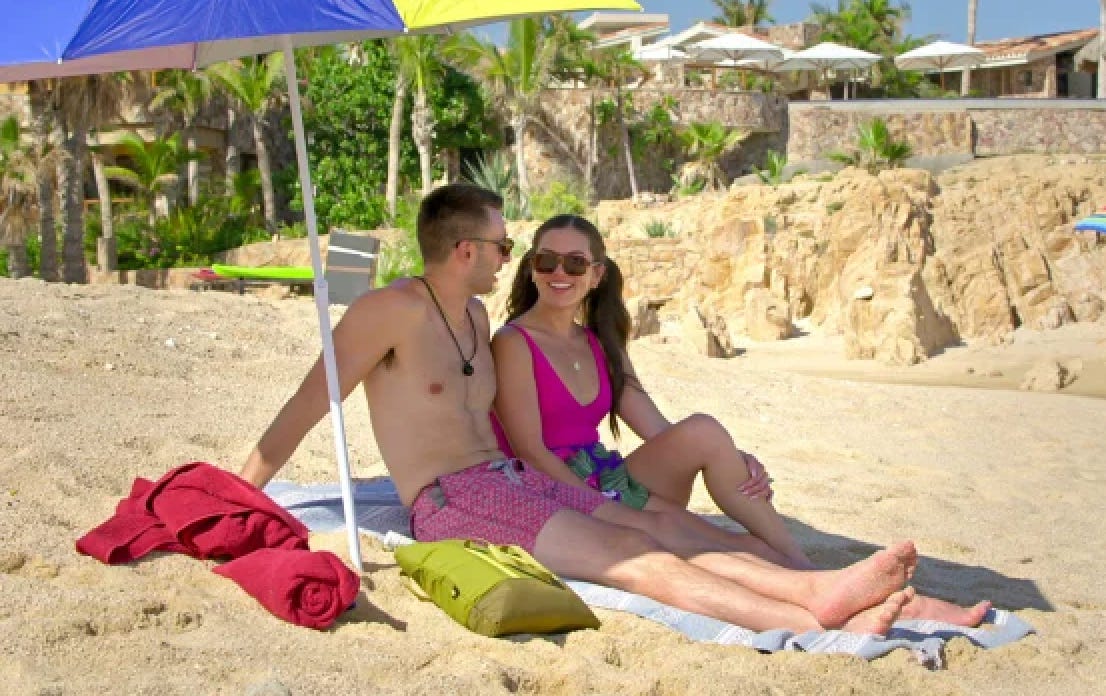
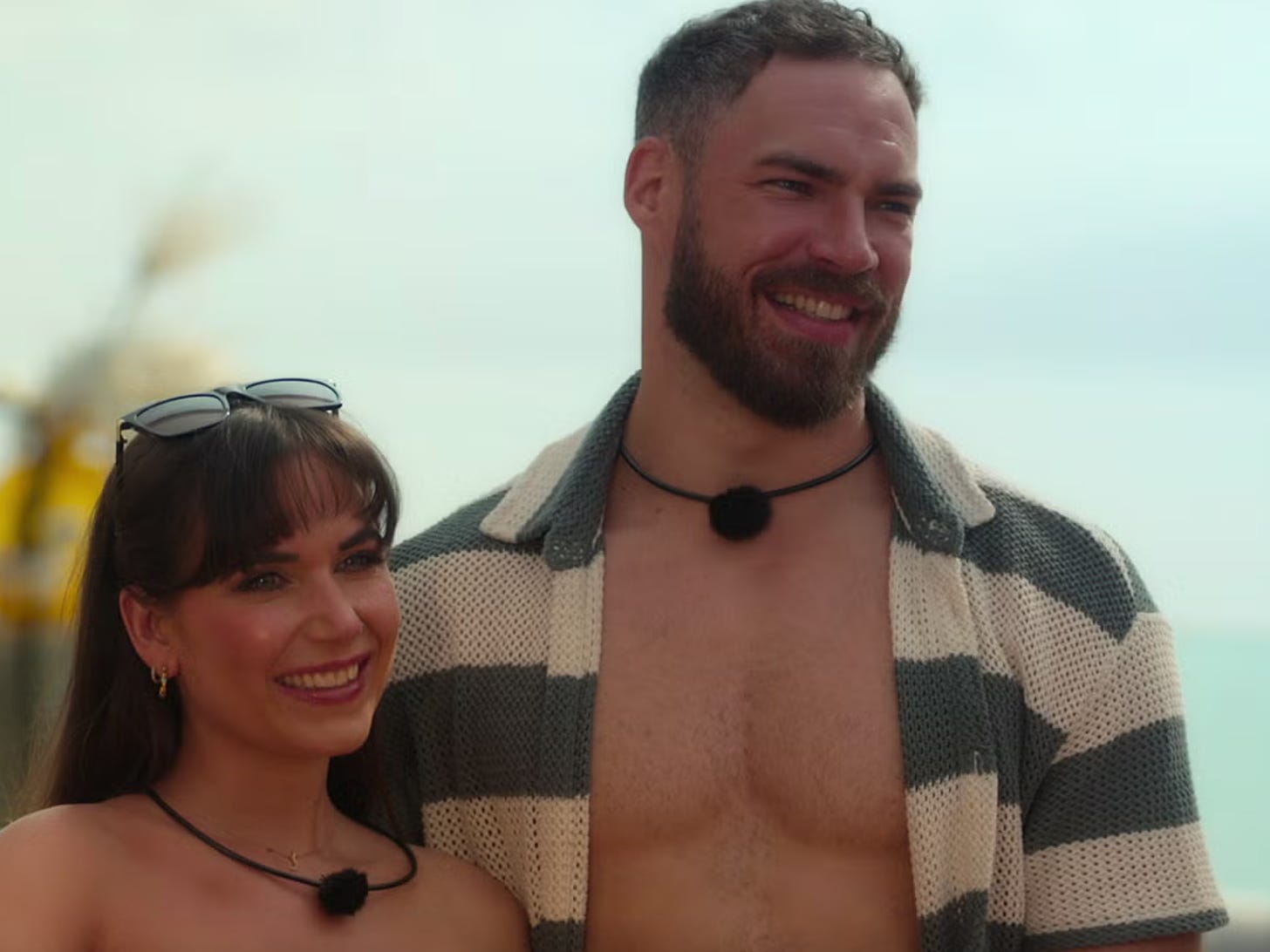
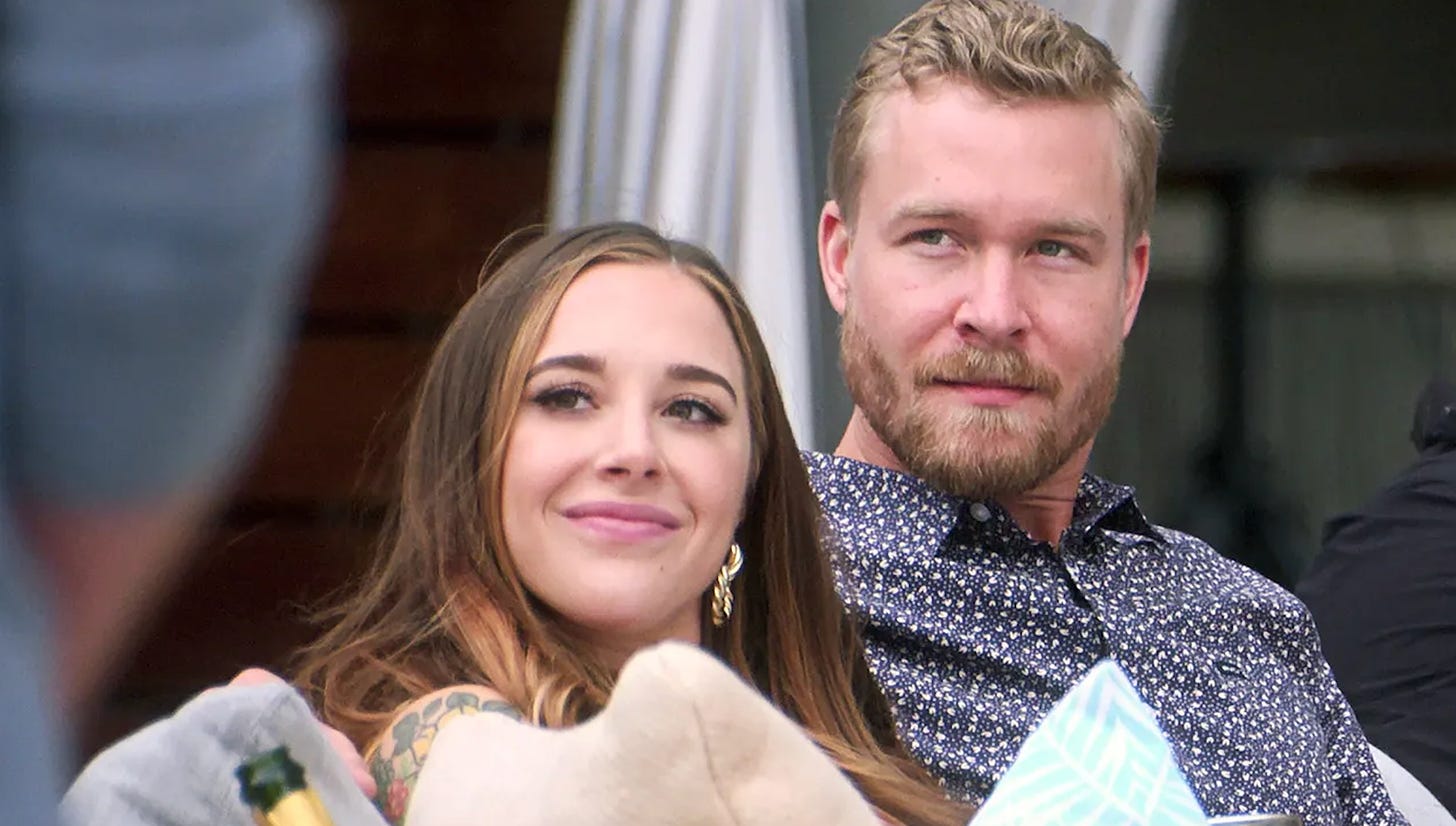
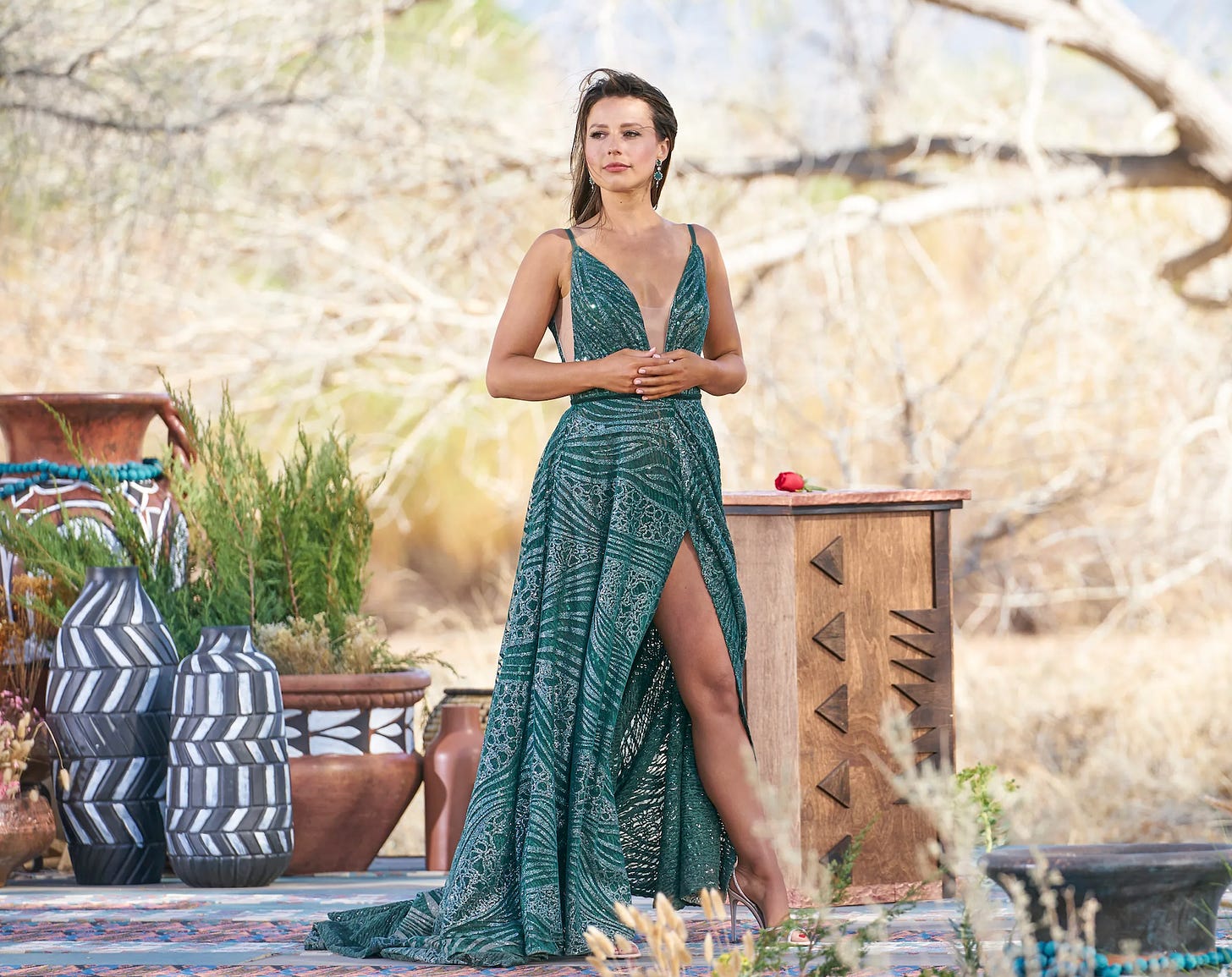


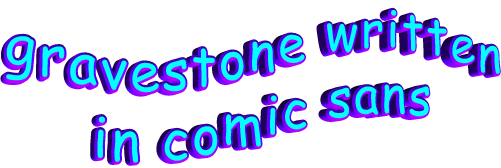

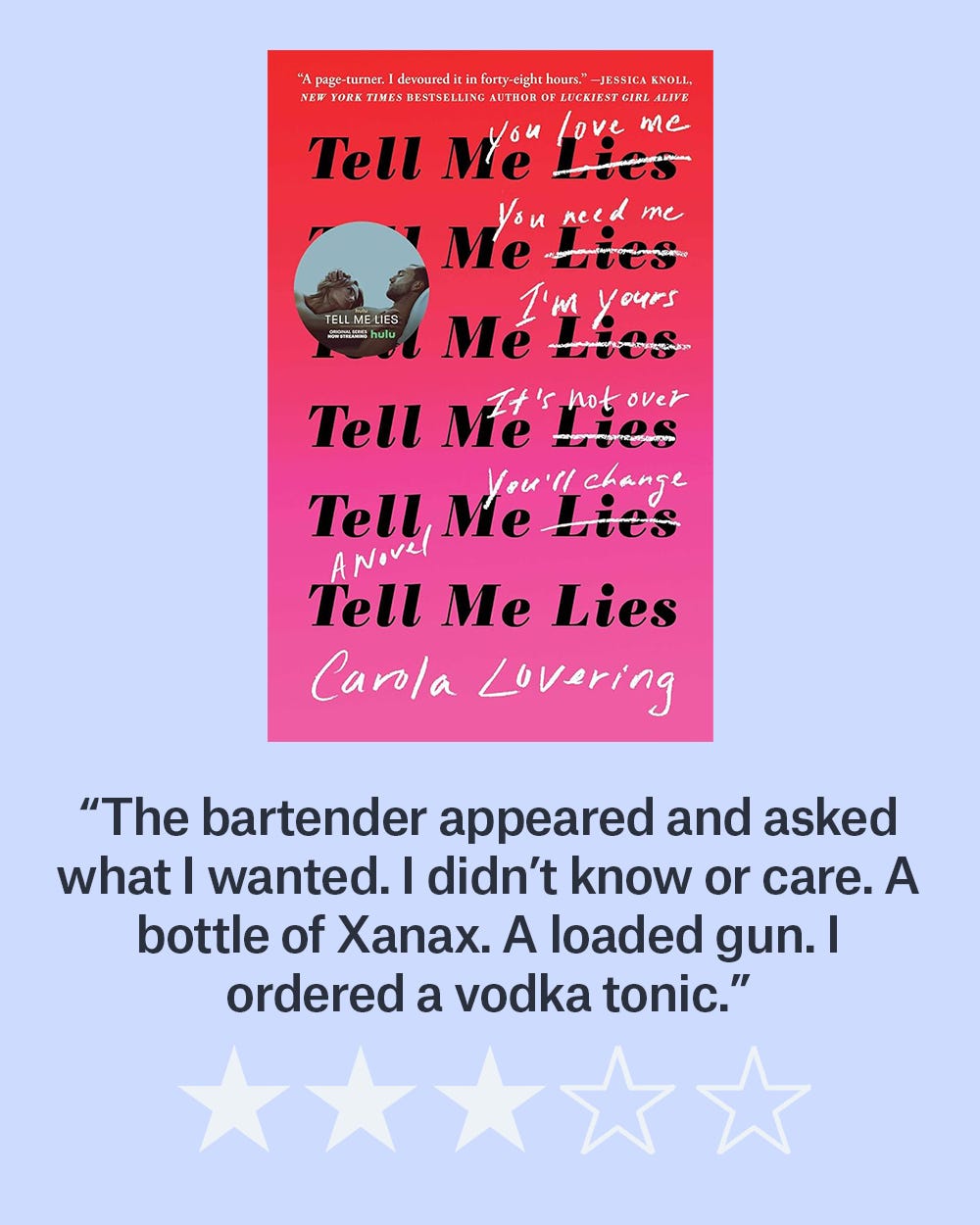

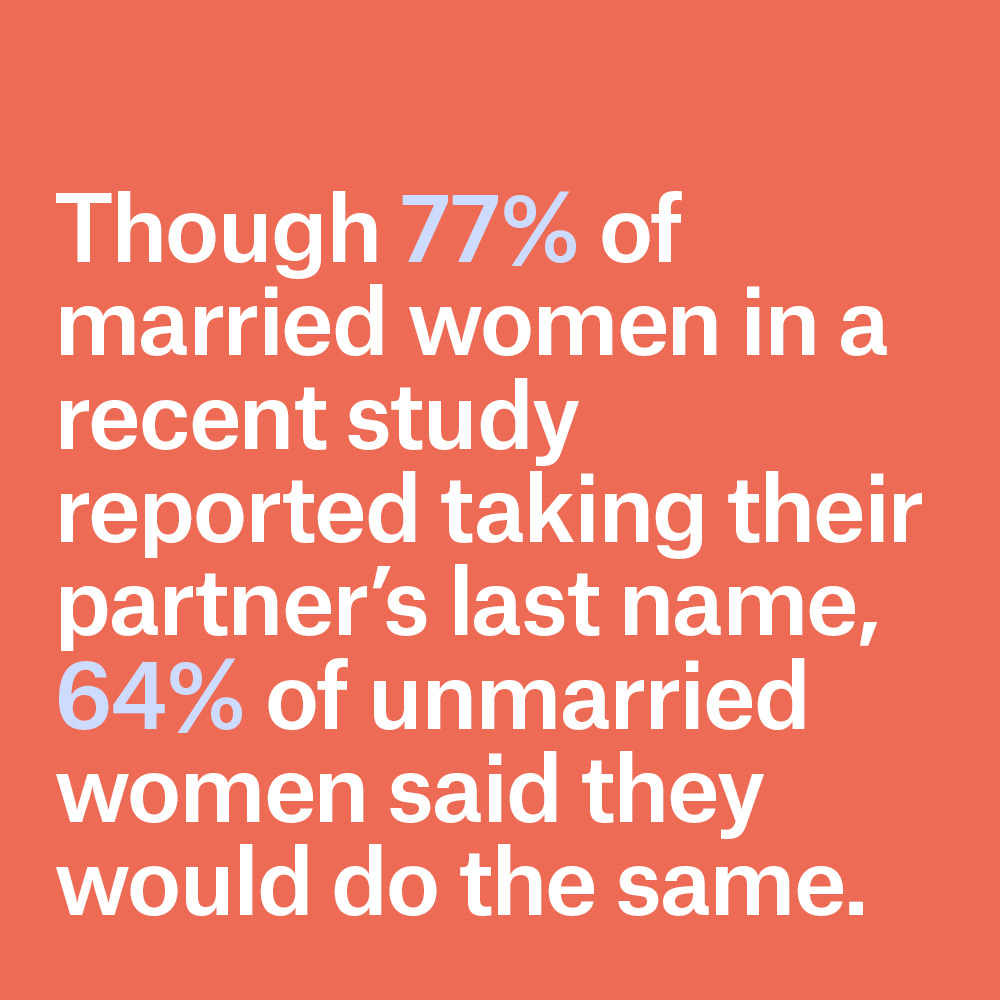



I’m honestly not surprised that everyone on reality tv wants kids, and I think your last little image about the stats on women taking their partners name ties in perfectly. Everyone who goes on reality tv, while it isn’t a traditional way to meet a partner, ARE traditional people. They all want their man to ask their daddy for their hand in marriage, they’ve been dreaming for their whole life of becoming a wifey, they can’t wait to take their husband’s name, they want their dad to walk them down the aisle and literally give them away like property, and on and on. I don’t personally know anyone with opinions like that, which is also probably why I do know people who don’t want to have children.
omg kelly im SO glad you touched on this. the heteronormativity of these shows (and i say this as a straight married woman) is so IRRITATING. all of them scrambling to take their mediocre men's surnames, all of them prattling on about their babies with men they JUST met, it's all sooo nauseating in its play-by-play similarity. not one woman who's interested in a long term partnership but not in the other accoutrements.